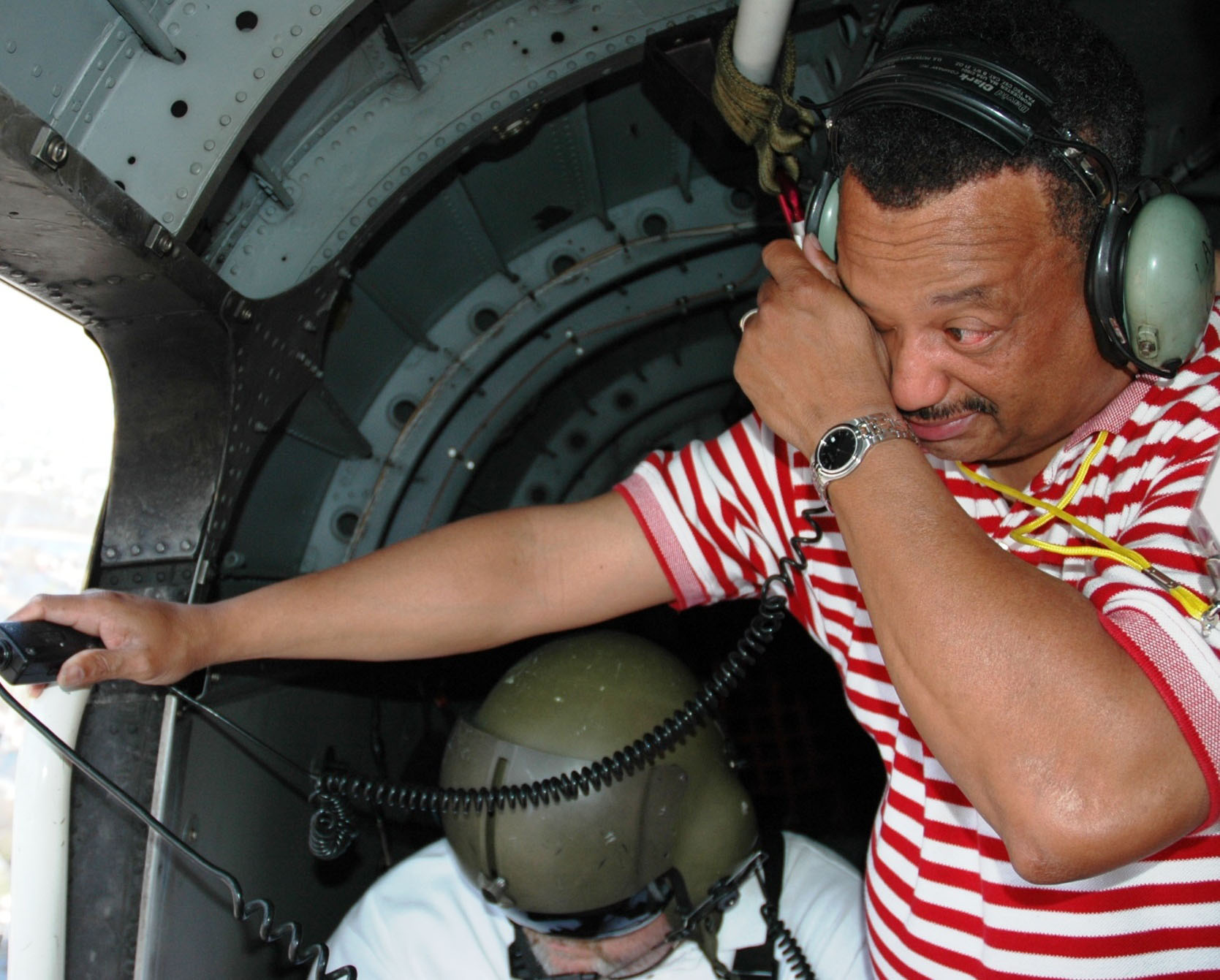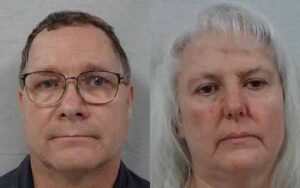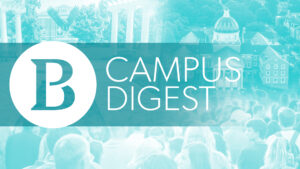
NEW ORLEANS (BP)–Five years have passed since Hurricane Katrina hurtled its way across southeastern Louisiana and the rest of the central Gulf Coast.
More than 1,800 deaths were recorded. Thousands upon thousands of people were displaced; in New Orleans, the U.S. Census Bureau reported a 53.9 percent drop in population between April 2000 and July 2006. (The city’s 485,000 population recorded by the Census Bureau in 2000 was estimated at 352,000 by the mayor’s office in mid-2009.) More than $81 billion in property damage makes Katrina the most costly ever of American disasters.
The emotional toll of the storm on area residents also remains high.
“I talked with a friend in Florida after Katrina who had gone through Andrew in 1992,” said Lonnie Wascom, director of missions for the three North Shore Baptist associations that plan to merge later this year, largely because of Katrina. “He told me it would be 10 years before most people really would get over it, and looking at it from the five-year mark, I’d say he was right on the money.”
Dennis Watson, pastor of what now is the multi-campus Celebration Church headquartered in the New Orleans suburb of Metairie on the east bank of the Mississippi River, noted a tangible effect of the stress still hovering over greater New Orleans.
“Prior to Katrina we had a small counseling ministry in our church,” Watson said. “Following Katrina, however, we became convinced that more than anything else — besides a relationship with Jesus — people needed trauma counseling. We re-launched the Celebration Hope Center which now has more than 25 counselors on staff and ministers to hundreds of people on a weekly basis.”
Two weeks before Katrina, the church, located in what had been an oversized strip mall on busy Airline Drive, had acquired a second location on Transcontinental Drive in Metairie by merging with the former Crescent City Baptist Church. Celebration’s main campus received more than six feet of water in the storm, while the new site received 18 inches. So after repairing the Transcontinental site, the congregation moved there.
The new acquisition, intended at the time to be a satellite congregation, was a God-sent way Celebration managed to hold its devastated congregation together as well as minister throughout the community, Watson said.
The Airline Drive parking lot was in a great location for Celebration to mount its massive disaster relief effort. The church estimated it served 140,000 families in post-Katrina outreach, providing such necessities as food, water, clothing and baby supplies, while also gutting and rebuilding homes.
The church lost 60 percent of its members due to displacement to other cities, yet “we are much larger than we were pre-Katrina,” Watson said, particularly noting “people who have been won to Christ” through the church’s ministries.
Celebration finally moved back to its Airline Drive location in June.
David Crosby in retrospect sees God’s hand at work in preparing the church he pastors — First Baptist New Orleans — for post-Katrina ministry. The church dedicated its new facilities on 17 acres in the Lakeside district of New Orleans in August 2004.
Lakeside flooded as a result of a broken levee, but the church didn’t because the building committee had made a pre-construction decision for the foundation to be 18 inches higher than city codes required. Floodwaters stopped at the threshold of the doors.
First Baptist, then, was able to host Franklin Avenue Baptist Church, which sat in 13 feet of floodwater in the Ninth Ward for three weeks. Franklin Avenue, where Fred Luter is pastor, had been the largest Southern Baptist church in Louisiana prior to Katrina. Its members began meeting in three groups after Katrina: in Houston, Baton Rouge and at First Baptist. The other two groups became stand-alone churches with pastors mentored by Luter. And after two and a half years at First Baptist, Franklin Avenue reopened its doors in April 2008.
Also in 2004, Crosby implemented a building campaign to construct 40 new homes in a blighted area of the central city he named Baptist Crossroads. The church was ready, then, to work post-Katrina with Habitat for Humanity in the construction of homes — 65 to date. Baptist Crossroads, now a consortium of Baptists and Habitat for Humanity, recently announced a five-year plan broadening its scope to a 185-block area in the Upper Ninth Ward.
“Our goal is that in five years all lots in the target neighborhood will be ‘improved,'” according to its website, www.baptistcrossroads.org. “‘Improved’ may be a new home, a renovated home, or a well-maintained vacant lot void of a decaying structure.'”
First Baptist also provided worship space for other Southern Baptists not able to use their buildings after Katrina, and its large worship center became a convenient meeting area/staging area for a variety of efforts to aid the stricken city, including SBC Disaster Relief, the Red Cross and Salvation Army.
Several other Southern Baptist churches in Greater New Orleans –- including the North Shore of Lake Pontchartrain — have similar stories of God’s “pre-K” provision. The common denominator, spoken of with great fervor, is Southern Baptists’ disaster relief organization.
“Because Southern Baptists had already done their homework and created a lattice of effective ministry outlets, our denomination responded quickly and effectively to the needs of people,” said Tobey Pitman, a national missionary with the North American Mission Board. He was director of the Brantley Center for the homeless near downtown New Orleans, which was damaged beyond repair by Katrina. After serving through NAMB’s NOAH Rebuild, he relocated to the North Shore where he leads in community ministry.
“Katrina served to refocus denominational thought on New Orleans,” Pitman said. “This is demonstrated in the huge number of volunteers who came immediately and have continued to leave footprints and heart prints here for five years.
“The incredible amount of money given for Katrina relief through NAMB disaster relief is a reliable barometer of how Southern Baptist people felt about New Orleans,” Pitman continued. “In a sense, Katrina reminded Southern Baptists about our roots, our heart for people and the value of the Gospel investment into the lives of people — both lost and saved — who are suffering pain and loss.”
Among the strengths of Southern Baptists are a readiness to volunteer, to give until it hurts to meet needs, to share the Gospel, and to stay for the long haul, said Freddie Arnold, who led disaster relief efforts through the New Orleans Baptist Association (the new name for the Baptist Association of Greater New Orleans, which now includes the Plaquemines Baptist Association as another effect of the storm).
“The devastation of the storm created such need that the people were open to any type of help,” Arnold said. “To get this help they were willing to hear the Gospel presentations with a greater attention to what was being said than ever before, and there was a greater openness to the Gospel than ever before.”
` North Shore DOM Wascom spoke of Southern Baptists coming together and putting their needs aside in order to be the hands and feet and arms of Jesus to a storm-stricken people.
“Things changed exponentially for the southeast Louisiana region, and I think that had an effect that covers the entire scope of the Southern Baptist Convention,” Wascom said. “The fact is, the eastern portion of my region received damages just as severe as those in some parts of New Orleans but our churches immediately laid aside their needs and began to partner with churches in Orleans, Jefferson, St. Bernard and Plaquemines parishes to assist in relief and recovery efforts there. This selfless cooperation is the most lasting memory for me.”
And Katrina became a teachable moment.
“Going through Hurricane Katrina was one of the most trying times in my life as a believer,” Franklin Avenue pastor Fred Luter said. “It also was a time when I learned the true meaning of ‘waiting on the Lord.’ Tribulation worketh patience!”
God taught First Baptist’s David Crosby that “the planning process is always subject to disruption. Chaos is a rich seedbed for new ideas. People in crisis seek God’s help. Recovery from disaster is largely dependent upon prior character development.”
The lessons Dennis Watson of Celebration Church learned: “Storms — natural, physical, emotional, financial, relational, vocational, spiritual — are a part of life. God is all-powerful and can circumvent the impact of storms. The Lord will be with us through the storms of life. God speaks to us through the storms of life. The Lord uses storms to make us more like Jesus.”
–30–
Karen L. Willoughby is managing editor of the Baptist Message, newsjournal of the Louisiana Baptist Convention.













